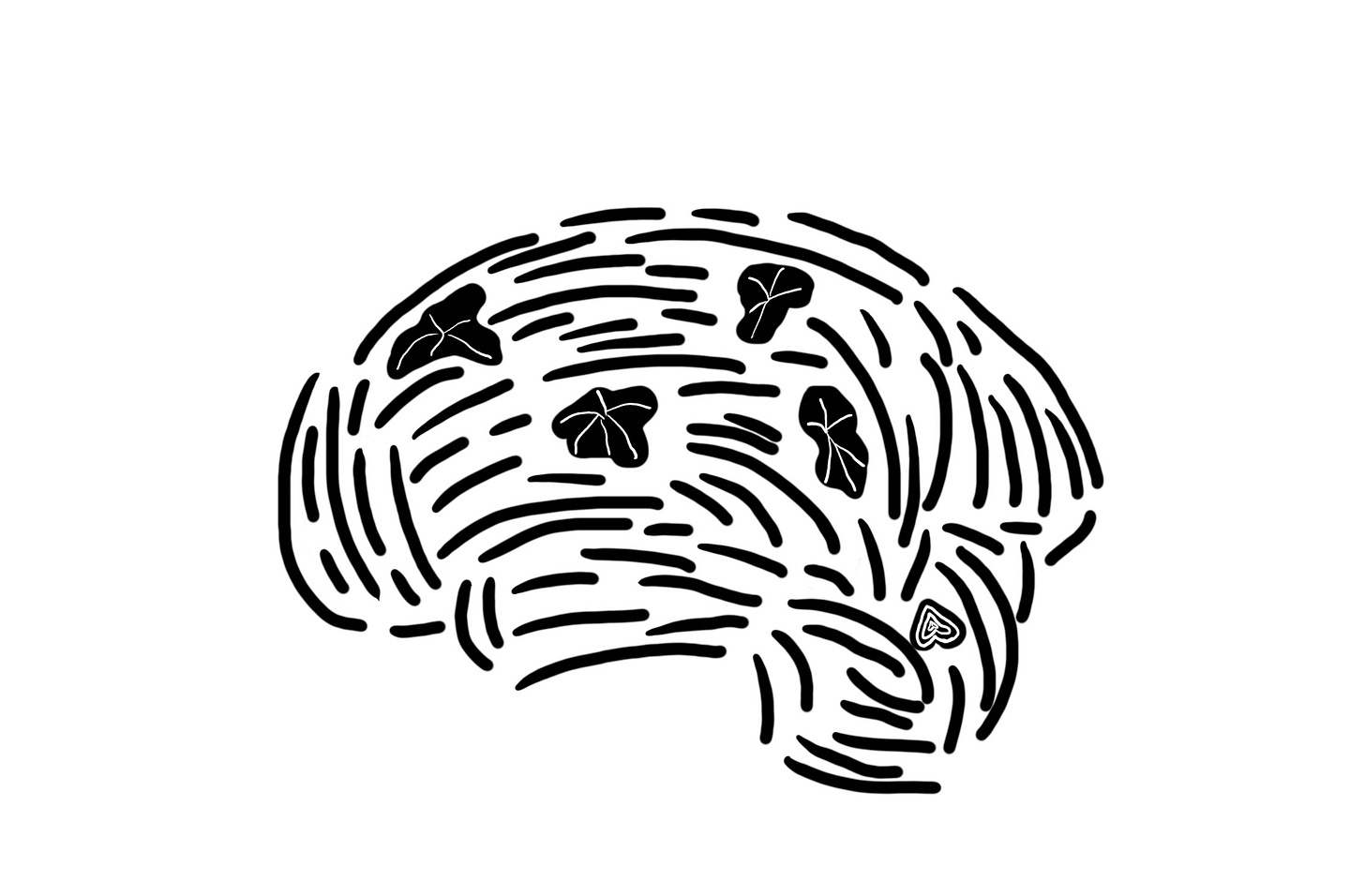[
Written in fading Expo marker on the whiteboard:
Please silent-read pgs 237-241.
Close your books when finished.
The instructions turn and stretch upwards, like vines trying to escape through the ceiling vent.
Why can’t anyone write straight on whiteboards? Does our everyday reliance on lined paper reinforce this flaw? What psychological fallacies about self-esteem can we extrapolate from whether one’s writing slants up toward the stars or down toward death?
EH-EH-EM.
You’re snapped out of your 9am daydream upon hearing this guttural, mucous filled release. It’s your history teacher, who quite frankly, looks like he’s just got off running a half marathon.
Fair enough. I’ll entertain “silent reading time” as my hungover mentor grants himself ten more minutes to sober up.
You slip your hands under the desk, carefully maneuvering around hardened pieces of gum like a neurosurgeon navigating a brain.
The textbook is old, tattered, and filled with misinformation. You thumb along the softened edges, searching, seeking, desiring for the 237th page.
Stop, there it is. You’ve found an edge that feels just right, so you slice horizontally with an open palm and flip open the pages.
Someone’s got magic fingers today.
You look over to the left to see whether your friend appreciated your trick shot, but oh that’s right, she’s out sick and so is everyone else to the left of her desk meaning that the whole time this internal monologue has been running through your head you’ve been smiling mischievously right at the teacher.
He stares back. Suspiciously.
Sigh. You slowly retreat your gaze back to 237 and 238 in front you.
What is the point of achievement if you have no one to share it with?
As you wrap up the first paragraph on the War of 1812, something catches your eye. It’s faint and fleeting, a marker of history within a history book.
You make out the smudged etching:
go to pg 402
Adventure!
You flip to 402, then to 293, then 908, diligently following the path forged by your predecessors. On your journey you’re met with material you’ll never be able to cover in class and material you will cover but never remember.
This is no time to get sentimental though. You have a mission to fulfill.
847, 69, 420, and 227—Principal's office, NOW.
You look up at your teacher hovering over your desk.
Why?
He’s still sweating and—oh wow he’s 100% hungover, you’re sure of that now. You trace his hyperextended, oscillating finger back down onto the pages in front of you.
A full page spread displays a remarkably detailed rendering of a 17th century Puritan. He’s wearing a black top hat, which complements his handlebar mustache. His ultra-tight stockings and tippy-tappy shoes look a bit silly, but he’s making up for it with his confidence. One hand leans effortlessly on a wooden cane, the other grasps firmly onto a Bible. This Puritan man is stereotypical and perfect for a history textbook.
But perfection means nothing to a bored teenager. Drawn on top of the midsection of this child of God, in thick black Sharpie, was an enormous… candlestick.
Leave, NOW.
Oops. Wrong place, wrong time. But it’s not like you want to be there anyways. As you pack up your bag, you wonder if you did in fact realize the treasure your predecessors left for you: the gift of leaving class early.
Make sure you bring the book to show the mischief you’ve been causing!
You grab the textbook and turn to leave, but not before getting the crap scared out of you: the football player behind you wants to fight. What could he possibly want?
Oh wait, never mind. He’s actually just offering up a fist bump.
Hey bro, I saw you flip to 237 on the first try. That was sick.
]
[
One day, our empire will crumble like all the empires that came before us.
Archaeologists will excavate the lands where schools were built on. And maybe, just maybe, they will discover a few artifacts of boredom.
Dried gum layers under desks. Indecent drawings in textbooks. Etched initials on benches. Burn marks from erasers used to heat up the desk surface. Colorful graffiti on bathroom stalls. Paperclip bracelets. Eraser balls.
Archaeologists may be confused at what to make of all this, which is why I wrote this essay.
May it serve as a handy reference for filling in the missing narratives behind what we left behind.
These artifacts of boredom are united by their shared boldness, beauty, and defiance. They were all cries for expression in an environment that enforced repression.
Most cries were seen, but very few were understood.
Let this be a lesson for future societies.
]





Dude, you should try writing fiction sometime - the way you wrote here makes me feel you'll do well
I love pieces like this because it always makes me wonder just how much of the history that we know is out of context/interpreted incorrectly 😭 wonderfully written, Raymond!